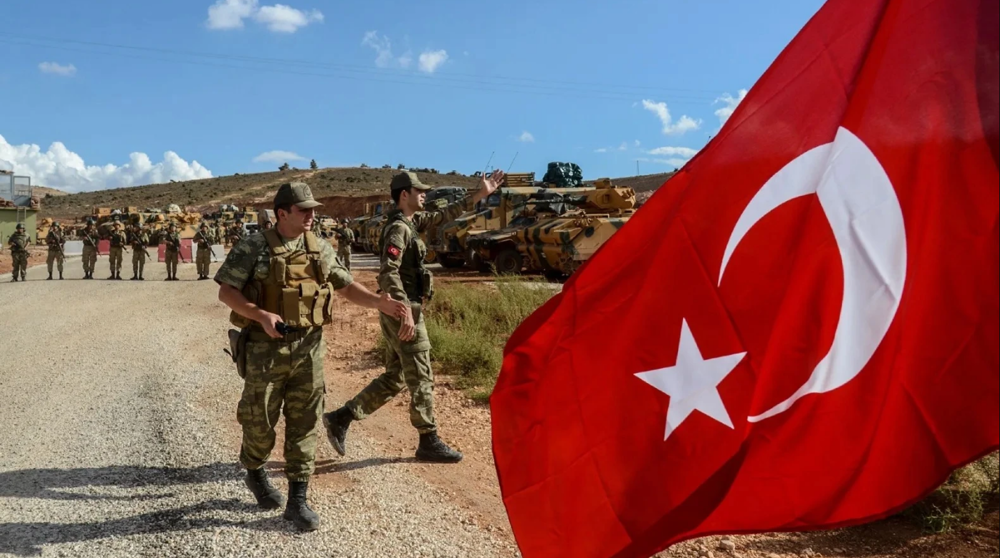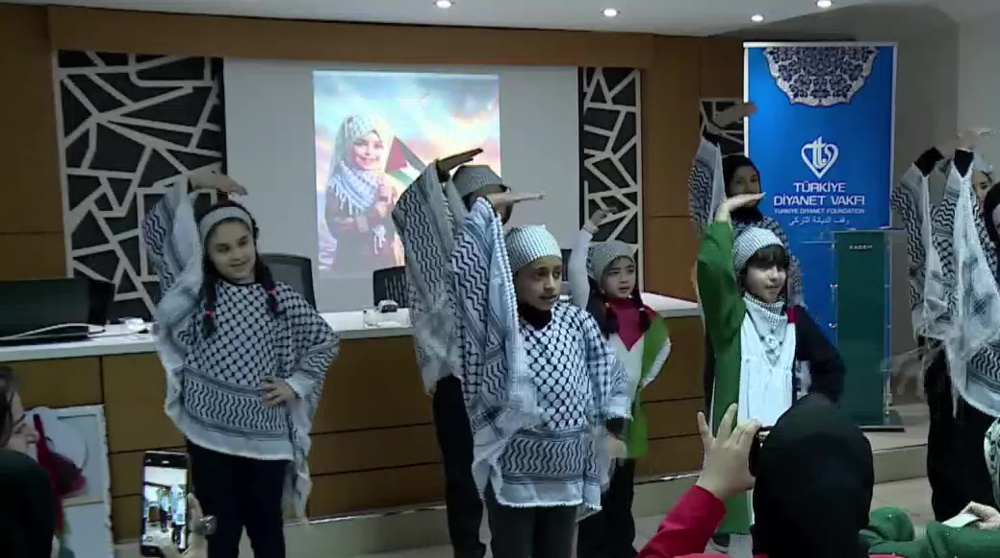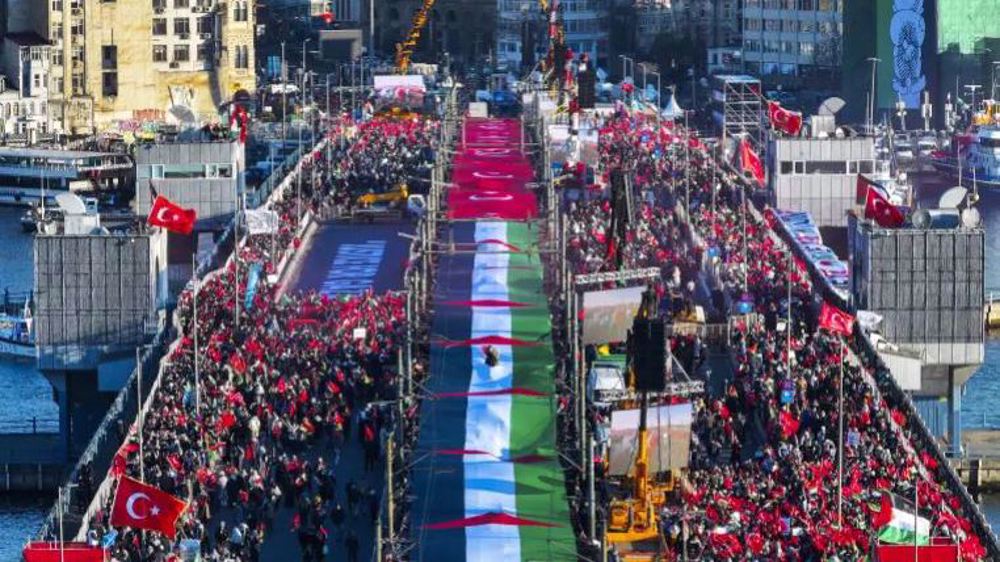Scuffles erupt between police, protesters in Istanbul
Clashes have broken out between police and demonstrators, who gathered in the Turkish city of Istanbul in support of Kemal Kilicdaroglu, leader of the opposition Republican People’s Party (CHP).
The confrontations came after about 1,000 CHP supporters attempted to march on the headquarters of the ruling Justice and Development Party (AKP) on Thursday. Some of those attending the event also threw eggs at police.
However, the Turkish policemen fired rubber bullets to disperse the protesters and blocked their way to the AKP headquarters.
Several people were also reported to be bending over in agony after being hit by the rubber bullets.
The demonstrators denounced death threats against Kilicdaroglu, who faced a protest, with a live bullet being thrown at him, during the funeral of the victims of Tuesday’s car bombing in Istanbul. A group of Kilicdaroglu critics torn up a wreath he had laid for the victims.
The Istanbul incident, which was blamed on Kurdish militants, killed 11 people, including six police officers and five civilians.
The attack against the CHP leader “was a black mark in the history of Turkish politics,” party spokeswoman Selin Sayek Boke said, adding the AKP had “drowned Turkey in blood” during its 14 years in power.
Threats against Kilicdaroglu came one day after he said on a live TV interview that he visited the Kurdistan Workers’ Party (PKK) militants in prison.
The CHP chief has repeatedly been accused of failing to give enough support to the Turkish government's crackdown on the militant group.

Ankara has been engaged in a large-scale anti-PKK campaign in its southern border region over the past few months. The Turkish military has also been pounding the group’s positions in northern Iraq as well in breach of the Arab country’s sovereignty.
Turkey’s operations began in the wake of a deadly July 2015 bombing in the southern town of Suruc, which the Turkish government blamed on the Takfiri Daesh terrorist group.
After the bombing, the PKK militants, who accuse Ankara of supporting Daesh, engaged in a series of reprisal attacks against Turkish police and security forces, prompting the Turkish military operations.
A shaky ceasefire between Ankara and the PKK that had stood since 2013 was declared null and void by the militants following the Turkish strikes against the group.
Arab rights group urges UK to sanction Netanyahu over 'incitement to genocide' in Gaza
‘Political, non-constructive’: Iran slams UNHRC special session on recent riots
Forced evacuations in South Gaza as Israeli military expands control over land
Iran reports steep rise in exports after forex policy shift
Iranian bank loans up 47.2% y/y in Apr-Dec
Macron slams Trump’s ‘bullying’ as US threatens tariffs, pushes Greenland grab
Israeli rape victim and former captive says Hamas felt safer than Israel
VIDEO | Press TV's news headlines















 This makes it easy to access the Press TV website
This makes it easy to access the Press TV website